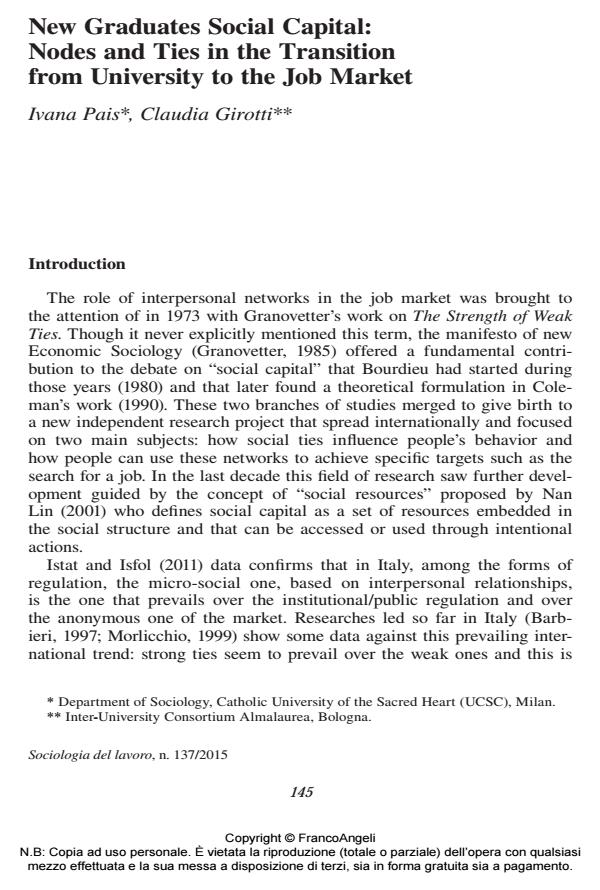New Graduates Social Capital: Nodes and Ties in the Transition from University to the Job Market
Journal title SOCIOLOGIA DEL LAVORO
Author/s Ivana Pais, Claudia Girotti
Publishing Year 2015 Issue 2015/137
Language English Pages 15 P. 145-159 File size 141 KB
DOI 10.3280/SL2015-137009
DOI is like a bar code for intellectual property: to have more infomation
click here
Below, you can see the article first page
If you want to buy this article in PDF format, you can do it, following the instructions to buy download credits

FrancoAngeli is member of Publishers International Linking Association, Inc (PILA), a not-for-profit association which run the CrossRef service enabling links to and from online scholarly content.
Granovetter first analyzed the role of interpersonal networks in the job market. It is useful to connect the general questions concerning the relation between social capital and employability to specific categories of candidates. In this paper we focus on graduates, who are facing growing difficulties of placement in the job market. What is the importance of social ties in the job placement of new graduates? What is the morphology of social networks that result effective in job searching? What are the characteristics of people who were used as contact by workers who are professionally successful and satisfied? To answer these questions a survey was led on a sample of Graduates of 2008, that was conducted via web between June and August 2012 and reached almost 6000 interviewed.
Keywords: Employability, social capital, youth, social networks, graduates, job searching
- Research Anthology on Adult Education and the Development of Lifelong Learners Juan-Francisco Martínez-Cerdá, Joan Torrent-Sellens, pp.470 (ISBN:9781799885986)
- Handbook of Research on Promoting Higher-Order Skills and Global Competencies in Life and Work Juan-Francisco Martínez-Cerdá, Joan Torrent-Sellens, pp.245 (ISBN:9781522563310)
Ivana Pais, Claudia Girotti, New Graduates Social Capital: Nodes and Ties in the Transition from University to the Job Market in "SOCIOLOGIA DEL LAVORO " 137/2015, pp 145-159, DOI: 10.3280/SL2015-137009